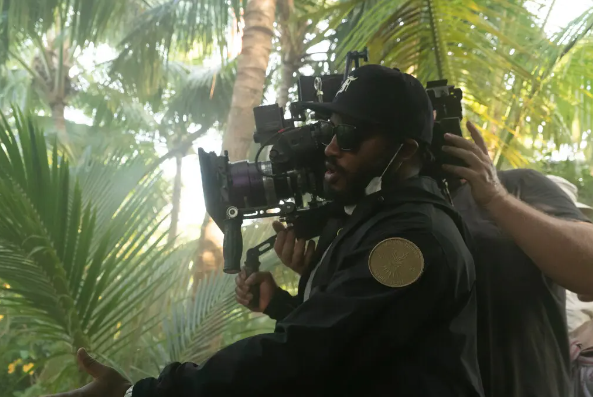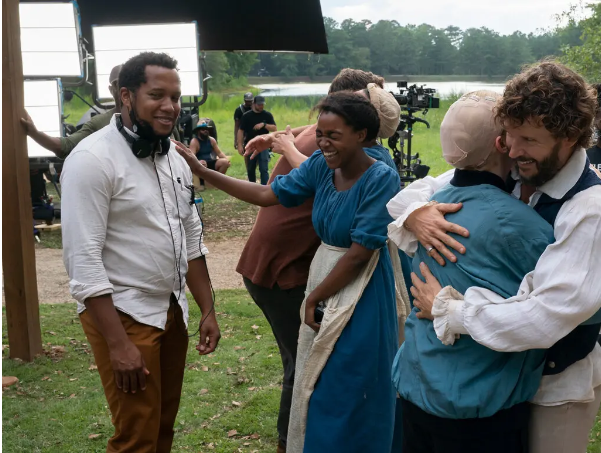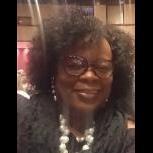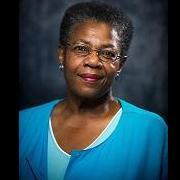-
Posts
2,497 -
Joined
-
Last visited
-
Days Won
95
richardmurray's Achievements
Single Status Update
See all updates by richardmurray
-

The director Ryan Coogler on the set of “Wakanda Forever.” Does he want to direct more “Black Panther” movies? “I’ll do it as long as folks will have me.”Credit...Annette Brown/Marvel
The ‘Black Panther’ Sequel That Never Was
Writer-director Ryan Coogler and co-screenwriter Joe Robert Cole reveal the original plot for “Wakanda Forever” and discuss working in the Marvel universe.
By Reggie Ugwu
The “Black Panther: Wakanda Forever” screenwriters Ryan Coogler and Joe Robert Cole are just coming up for air. A month after release, the much anticipated follow-up to the original “Black Panther” (2018) is well situated, still screening at more than 3,000 theaters heading into the holiday weekend. The film has received mostly positive reviews from critics and holds the year’s second-highest performance at the box office, after “Top Gun: Maverick.” To date, it has grossed more than $420 million domestically and nearly $800 million overall.
Things could have gone much differently.
“This film was difficult in ways that only the people who made it would know,” Coogler said in a recent interview. “There are things we put in there that felt revolutionary, that challenged the definition of having ‘a good time’ in a movie like this.”
The death of Chadwick Boseman, who played the title role in the original film — a noble but untested leader of the fictional African promised land Wakanda — forced a radical reimagining of the franchise. Coogler and Cole had recently sent Boseman a completed first draft of the script when the actor succumbed to a secret bout with colon cancer.
Their eventual rewrite opened with the death of Boseman’s character, T’Challa, turning the $250 million superhero film that followed into what can be fairly described as an extended meditation on grief and recovery.
In a recent joint conversation over video, the screenwriters discussed their original vision for a “Black Panther” sequel, how they addressed the loss of Boseman, and balancing the demands of their story with those of the broader Marvel Cinematic Universe.
These are edited — and spoiler-filled — excerpts from the conversation.
What was it like collaborating this time?
RYAN COOGLER Last time we went back and forth. Joe had already started when I came on. I think I tried to go for a draft, but I was taking too long and so he jumped in. Then we would get notes from the studio, and we would just kind of divide and conquer. On the second one, we were doing it over the pandemic, so we couldn’t meet up. But Final Draft [the screenwriting software] came out with this update where we could both work in the script at the same time. It was an amazing feature. Very productive, very fun.
JOE ROBERT COLE It allowed us to bridge that feeling of being in a room and just spitballing ideas.
COOGLER Then we took that hit, bro, when Chad passed. I couldn’t believe what was happening. I didn’t know how we were going to pull ourselves up and figure it out. Thank God for Joe and the collaborative process, man. It would’ve been impossible for me to write this thing on my own.
In the initial draft of the script, before Chadwick’s death, how were you looking at the story? What were the challenges?
COOGLER It was, “What are we going to do about the Blip?” [In Marvel’s “Avengers: Infinity War,” T’Challa is one of billions of people who suddenly vanish, only to be brought back by the Avengers five years later.] That was the challenge. It was absolutely nothing like what we made. It was going to be a father-son story from the perspective of a father, because the first movie had been a father-son story from the perspective of the sons.
In the script, T’Challa was a dad who’d had this forced five-year absence from his son’s life. The first scene was an animated sequence. You hear Nakia [T’Challa’s love interest, played by Lupita Nyong’o] talking to Toussaint [the couple’s child, introduced in “Wakanda Forever” in a post-credits sequence]. She says, “Tell me what you know about your father.” You realize that he doesn’t know his dad was the Black Panther. He’s never met him, and Nakia is remarried to a Haitian dude. Then, we cut to reality and it’s the night that everybody comes back from the Blip. You see T’Challa meet the kid for the first time.
Then it cuts ahead three years and he’s essentially co-parenting. We had some crazy scenes in there for Chad, man. Our code name for the movie was “Summer Break,” and the movie was about a summer that the kid spends with his dad. For his eighth birthday, they do a ritual where they go out into the bush and have to live off the land. But something happens and T’Challa has to go save the world with his son on his hip. That was the movie.
Was Namor, the leader of the undersea nation Talokan in “Wakanda Forever,” still the villain?
COOGLER Yeah. But it was a combination. Val [the C.I.A. director, played by Julia Louis-Dreyfus] was much more active. It was basically a three-way conflict between Wakanda, the U.S. and Talokan. But it was all mostly from the child’s perspective.
In the new version, the opening scene is T’Challa’s death. Why did you decide to start there?
COLE Just practically, everyone was going to be waiting to see how we dealt with it, so doing it right up front made sense. In terms of the characters, we needed to introduce a different version of Shuri [T’Challa’s sister, played by Letitia Wright]. We’re showing the moment that she becomes a different person than the person we met. She’s the smartest person in the world, but she can’t save her brother. What does that do to you?
COOGLER We wanted to have an emotionally intelligent conversation. It’s about the transformative quality of grief and trauma. There’s this expectation with emotional trauma that you just need time. “Oh, give them a couple weeks off; they’ll come back to work and get back to it.” But that person is completely different in some ways. You just don’t see it because the change isn’t visible.
T’Challa’s death is attributed to an illness, but it seems sudden and inexplicable, which profoundly unsettles Shuri. Why did you make that choice?
COOGLER We wanted to keep it simple. At the end of the day, what mattered is that she had a self-expectation of being able to be solve it and she failed. And we didn’t want her to have anywhere to displace her anger. If somebody else would’ve taken T’Challa out, Shuri would’ve looked for that person. We wanted it to be a situation where the only place to go was internal.
Julia Louis-Dreyfus’s character has appeared in other Marvel properties and is being set up as a major antagonist in the studio’s future projects, including the “Thunderbolts” movie due in 2024. Is it challenging to incorporate characters or story lines from the broader Marvel Cinematic Universe?
COLE Ryan will have a different perspective as the director, but I’ve never had a conversation where I was asked to incorporate something that didn’t feel organic. The dynamic of the U.S. being an instigator and Western powers being an instigator, that always existed. It wasn’t, “Oh, we need to find a reason to make this character exist.” It was, “Oh, this is already in here and there’s this wonderful actress available.” It always starts from the story and the ideas.
COOGLER Yeah, nobody was shoehorned in or asked to be put into the movie or anything like that. Actually, in this version, [Louis-Dreyfus’s role] was pared back in order to make space for dealing with T’Challa’s death. And we had Val in there before she even appeared in any of the other movies, before “Black Widow” and [the series] “Falcon and the Winter Soldier.” People assume that we were told to put her in, but she was there from the beginning.
Ryan, what’s your appetite to tell more stories in the world of Wakanda?
COOGLER I feel blessed that I have the opportunity to work on these movies, bro. When I got asked to do the first one, it was like a moving train. I thank God every day that I was able to jump on it and meet these people, these actors, and to meet Chadwick during some of the last years of his life. I’ll do it as long as folks will have me. But I think it’s bigger than just me or Joe. Between the first and second movie, we made $2 billion at the box office, which is what matters the most to corporations. So I hope that it continues, man. I hope people are still making movies about Wakanda long after we’re gone.
Reggie Ugwu is a pop culture reporter covering a range of subjects, including film, television, music and internet culture. Before joining The Times in 2017, he was a reporter for BuzzFeed News and Billboard magazine. @uugwuu
URL : https://www.nytimes.com/2022/12/23/arts/ryan-coogler-black-panther-wakanda-forever.html

Jacobs-Jenkins, far left, on the “Kindred” set during filming. “In honoring Octavia’s book, I’m trying to find new things to talk about,” he said.Credit...Tina Rowden/FX
‘Kindred’ Creator Wants Viewers to ‘Question Their Assumptions’
In his TV adaptation of the Octavia Butler novel, Branden Jacobs-Jenkins changed parts of the story but kept the author’s focus on “making the familial political.”
By Salamishah Tillet
Dec. 26, 2022
“If a ‘Kindred’ movie is ever made, I wouldn’t be involved,” Octavia Butler wrote in a letter in 2000. “It won’t be my movie, and I suspect it won’t look much like my book.”
It was yet another Butler prediction that was mostly on target, though she was wrong about the format. Adapted by the playwright Branden Jacobs-Jenkins for FX on Hulu, “Kindred” is neither a film nor a completely faithful interpretation of the novel. But it comes at a time when there is more interest in Butler’s body of work than ever before, and in how her prolific writing, mainly science fiction novels, continues to resonate with our world more than 15 years after her death.
“Kindred” is Butler’s most well-known and often-taught novel. Published in 1979, it tells the story of Dana Franklin, a 26-year-old African American writer who repeatedly and unexpectedly travels from 1976 to a mid-19th-century plantation in Maryland. Each time Dana arrives in the past, she finds herself saving the life of Rufus Weylin, her white slaveholding ancestor; she returns to the present only when her own life is at risk.
In a 1988 interview with the literary critic Larry McCaffery, Butler said that “Kindred,” with its blend of genres, periods and antebellum histories, was informed by ideological debates she had during college in the 1960s, about the extent to which slaves should have rebelled against their masters.
Knowing this, Jacobs-Jenkins sought to capture those tensions while updating the story to convey the complexity of our post-Obama racial reality. A lifelong Butler fan, he wanted to turn “Kindred” into a television series as far back as 2010, when he debuted his first full-length play, “Neighbors,” at the Public Theater.
The drama was well regarded, but it was Jacobs-Jenkins’s 2014 Obie-award-winning play, “An Octoroon,” that established him as one of America’s most exciting young playwrights. A satirical adaptation of Dion Boucicault’s “The Octoroon,” a 19th-century melodrama about the tragic love story between a European-educated white plantation owner and the play’s titular character, an enslaved woman, the play inspired critical raves and hot ticket sales. In his review for The New York Times, Ben Brantley wrote that its success “seemed to confirm the reputation of its author as one of this country’s most original and illuminating writers about race.”
Even then, Jacobs-Jenkins remained committed to “Kindred.” In 2015, he persuaded Courtney Lee-Mitchell, the rights holder of the novel, that it should be a television series and not a movie as previously imagined by other potential producers and even by Butler herself. The decision to stretch the story over multiple seasons has drawn some criticism. (All eight episodes of Season 1 are available on Hulu, but the series has not yet been renewed.)
Nevertheless, Jacobs-Jenkins hopes that his expansion of the novel’s universe encourages more people to discover Butler’s writing for themselves.
“After watching this, I want people to question their assumptions about what they think they know about history, about themselves,” he said. “I want them to read Octavia’s work.”
In a video interview earlier this month, Jacobs-Jenkins talked about his introduction to Butler’s writing, the motivations behind some of his changes to her story and why he thinks television and theaters need even more stories about slavery. These are edited excerpts from that conversation.
When did you first come in contact with “Kindred”?
My relationship with Butler preceded my engagement with “Kindred.” I was one of those kids reading Stephen King on the playground for no good reason, and Ray Bradbury’s novels were important transitional objects for me too. I was like 12 or 13 when I had a babysitter who went to Howard, who was a Black nerd, too. She told me, “You should read Octavia Butler.” So I started with her Patternist series. And when I got to college, I read her on an African American studies syllabus and remember thinking, Oh, this person I read for fun is important academically. That is also when I learned of “Kindred,” which was oddly one of my later introductions to her work.
Before, when I was reading her, it felt very much still like a secret; it felt good to be a part of that weird underground. And now, she’s been mainstreamed in this gigantic way.
How did this adaptation come about?
Slavery is the material of my creative life. I remember becoming obsessed with the visual work of Kara Walker, Glenn Ligon and Kerry James Marshall and wondered why they were so ahead of theater. So back then, I said, I’m going to deep-dive these people, and I’m going to write a play based on my deep dive. I just inhaled whatever their discourse was and tried to translate it into a theater space. And the truth is, my creative life is also ultimately guided by fandom on some level, and I remember rereading “Kindred” in 2010 and thinking, This is a TV show. It was a eureka moment.
I immediately started figuring out how to get the rights. It had been under option since 1979 because people kept trying to make a movie out of it. And I was like, It’s not a movie. Because the whole book is about the experience of time’s passage and watching people transform, witnessing their development, growth, decay and shift of their allegiances. It took six years for me to get the rights, and then my task became trying to translate it and ultimately peel back the layers for people.
Speaking of time passages, her novel was set in 1976 to coincide with the bicentennial year of the Declaration of Independence. Why did you set the series in 2016?
Along the way, I became very friendly with Merrilee Heifetz, Butler’s literary executor and her lifelong agent. One of the things she said to me was, “Octavia would’ve wanted you to make this for now.” So I took that to heart. I think 2016 was that last gasp of naïveté about how we had processed the legacies of this racial regime that the country’s founded on. Do you remember the day after Obama was elected, suddenly, there was a discussion of a phrase called post-race? I remember asking, “What is that?” I also think because people did not see the results of the 2016 [presidential] election coming, we suddenly felt like we were backsliding as a country. “Kindred” was the ultimate metaphor for that, too.
Another surprising change was your inclusion of her mother as a major character. What inspired that story line?
Merrilee also told me that Octavia referred to this book as one she never quite cracked. That interested me because this is her most widely read and known book, and that also sent me to her archives, which had just been cataloged at the Huntington Library.
I read every draft of “Kindred,” and there are ones in which she experimented with this mother figure. In her canon, she’s obsessed with mothers. I don’t want to be psychoanalyzing another artist, but her relationship with her mother was very complicated. Merrilee told me once that she would say, “Octavia, I want you to write a memoir.” And she would say, “I’ve already written a memoir; it’s called ‘Kindred.’”
Unlike many other contemporary representations of enslaved people in television and film, Dana is not by herself. She has a community in each of her periods to help her. Why was this important to portray?
I think Octavia was obsessed with family. I mean, it’s called “Kindred,” and it is about making the familial political. My approach was to always think of what she was doing and try to echo or expand on that universe — I took all my cues from her, except for setting it in 2016. At the same time, she was always trying to understand why tribalism exists, why genes are so varied as a concept, how they’re weaponized to oppress people and what oppression ultimately is rooted in.
Dana has to make some hard choices for herself and often risks the lives of other enslaved African Americans to ensure that she continues to exist in the present. How did you approach bringing her moral ambiguity to the screen?
That’s an essential part of the book, and I think that’s what makes Dana interesting. Most folks are not participating in active insurrection but are fighting in small ways to maintain their agency. This is driven home in Dana, who says to herself: “Wait a minute, to ensure my existence, I have become someone who might destroy or erase the existences of countless people. I want to be perceived as good, and I want to think that my goodness will rub off on Rufus too.” But playing both sides isn’t how justice happens. You wind up being morally compromised in all your actions if you are still thinking about yourself. That’s the interesting challenge she has to negotiate.
Why did you think a multi-season arc was best for this story versus adapting it as a single-season limited series?
I just didn’t think you could do this book in eight hours. It’s about being with people over time and really feeling these tectonic shifts in their personhood. I thought the idea of squeezing in six different actors for Rufus would have felt like a party trick. I’m sure that someone out there could have made that thing, but I just really wanted to give us the fullest canvas I could to tell the story.
Do you ever worry that audiences will grow weary of stories on slavery?
There is this interesting quota that we all want to put on stories about slavery, and I think that question is often asked only of Black creatives. There are a thousand shows on the air about rich white families doing evil sympathetically, and no one puts a quota on that. I think it’s interesting that there’s this desire to police any storytelling about a creative’s history. I mean, this is my history and my family history.
I also think people are worried, afraid of, or sick of the tropes and stereotypes that come with this work and are waiting for the familiar scene in which some female enslaved person is raped or someone is tied to a pole or a tree and whipped. But in honoring Octavia’s book, I’m trying to find new things to talk about. We should never stop telling these stories, especially when people try to erase them from history books.
Salamishah Tillet is a contributing critic at large for The Times and a professor at Rutgers University. She won the Pulitzer Prize for criticism in 2022, for columns examining race and Black perspectives as the arts and entertainment world responded to the Black Lives Matter moment with new works. @salamishah
-

forum post
- Show next comments 3 more
-



.thumb.jpg.afc88dfee9cd2927de0c440601caac13.jpg)



.thumb.jpg.ed52910791d00308abb8c218695bec88.jpg)



.thumb.jpg.579f3b4726aec5a1c1f6f2a1e9356092.jpg)